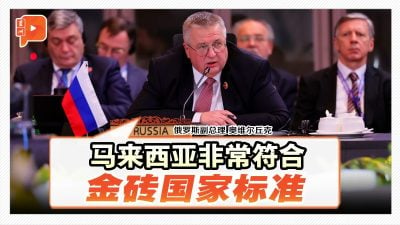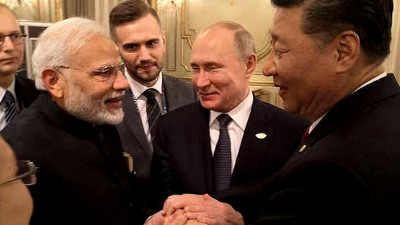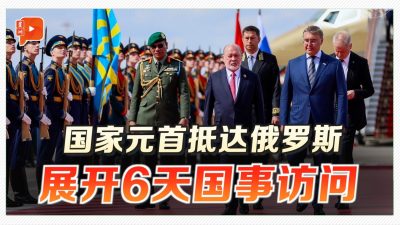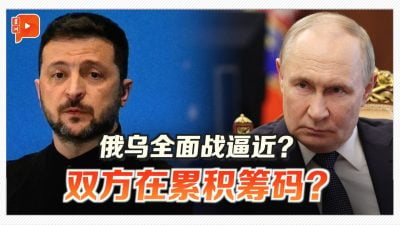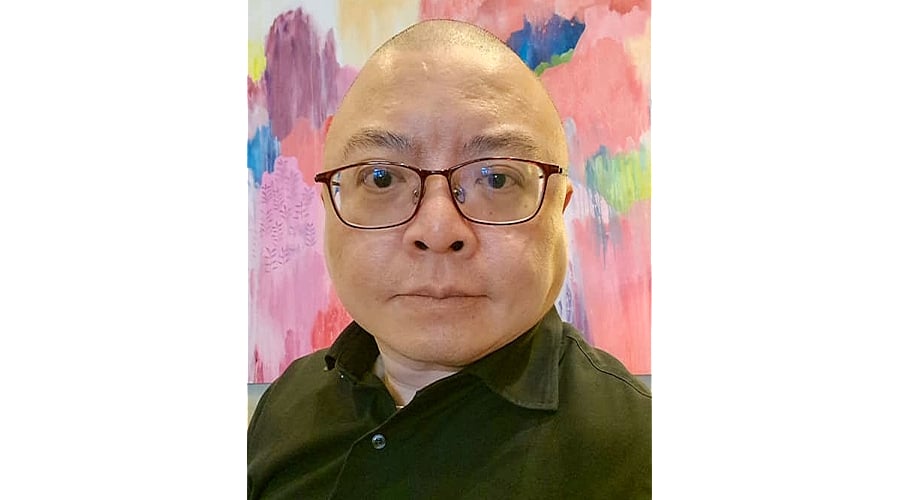
When Malaysian Prime Minister Anwar Ibrahim met President Vladimir Putin recently, he did not skirt around sensitive issues.
He raised them, clearly and candidly. In response, President Putin extended his condolences to the victims’ families and reaffirmed Russia’s readiness for an honest, comprehensive investigation.
Foreign Minister Sergey Lavrov went further: Russia has cooperated with international probes from the beginning, submitting satellite data early on.
The United States and Ukraine, despite having loudly declared access to decisive imagery, have yet to submit their own intelligence for scrutiny.
This exchange is not merely a matter of protocol—it is an example of principled engagement.
By raising a difficult issue, while continuing to engage at the highest level, Malaysia is practicing the sort of strategic diplomacy that recognizes the contours of history: that geopolitics is not about transactional diplomacy alone, but about steering international relations through turbulent eras with vision and consistency.
Too often, regional diplomacy is reduced to checklist items: halal diplomacy, student exchanges, small modular nuclear reactor deals.
These are useful tools, but they are not substitutes for strategic alignment. Malaysia, like Russia, is a civilizational state—one that must understand power not only through the prism of markets or soft culture, but through the long arc of historical trends, alliances, and civilizational narratives.
Russia’s grand strategy: Beyond the nation-state
To understand Russia’s worldview is to understand that its diplomacy operates not merely as a Eurasian power but as a pan-Russian civilizational actor.
This is not a state content with playing within the confines of the Western-led order.
Russia rejects unipolarity not simply because it has been excluded from it, but because it sees the very structure of that order as inherently unjust.
Whether or not one agrees with Moscow’s approach, it is crucial to grasp that it seeks to revise—not simply rebel against—the post-Cold War settlement.
It is in this light that Malaysia must engage Russia—not by mimicking Western tropes or narrowing relations to technical assistance and bilateral projects, but by recognizing and responding to the broader thrust of history that Russia believes it is part of.
Russia sees itself in long civilizational cycles, where balance, spheres of influence, and strategic autonomy matter far more than being part of donor-recipient equations.
Malaysia’s own strategic imperative: Aligning with history
Malaysia cannot afford to play small when the tectonics of global order are shifting.
The current global environment, shaped by US-China competition, NATO’s eastward push, the Global South’s demand for a fairer world order, and the revival of multipolarity, requires Malaysia to act with scale and coherence.
This means seeing itself not as a small or middle power hedging between giants, but as a connector and convener across key platforms: ASEAN, OIC, GCC, and the Global South.
Indeed, Malaysia’s legacy as a leader of the Non-Aligned Movement, as well as its moral authority in the Islamic world and ASEAN, grants it the unique leverage to practice what may be called “strategic cosmopolitanism”: engaging all actors with independence, without ideological subservience.
Prime Minister Anwar Ibrahim’s current approach of value-based statecraft is well suited to this.
But to realize this vision, Malaysia must engage countries like Russia not through the language of policy trinkets, but through the grammar of geopolitics and historical realism.
The East Asia Summit: Malaysia must anchor Russia in the Indo-Pacific
As Kuala Lumpur prepares to host the East Asia Summit in October 2025, Russia’s presence must not be symbolic. It must be strategic.
Malaysia’s priority should be to help ensure that Moscow does not drift away from East Asian multilateralism—especially given the ongoing war in Ukraine, sanctions, and Moscow’s deepening ties with Beijing.
This does not mean uncritically endorsing all of Russia’s moves. Rather, it means helping Russia remain constructively anchored in a multipolar East Asia, not isolated or reactive.
Russia, for instance, still has important security partnerships with Vietnam and India. Its energy projects in ASEAN, such as in Myanmar and Indonesia, also demonstrate its ongoing interests.
The East Asia Summit is an ideal venue for re-centering Russia’s role in peaceful dialogue—especially amid deepening military alignments elsewhere in the region.
Prime Minister Anwar can play a quiet but pivotal role here: not by being an intermediary for Western-Russian détente, but by ensuring that ASEAN remains a space for inclusive diplomacy, even for actors under heavy pressure.
Building strategic literacy at home
For this vision to succeed, Malaysia must also educate its own public and elite class in the vocabulary of statecraft.
The country must move beyond thinking of diplomacy as a string of MOUs or economic conferences.
Malaysia’s civil society, academia, and media must begin grappling with concepts like multipolarity, civilizational statecraft, and security architecture—not merely consumerism, cultural promotion, or investment attraction.
As Russia redefines its place in global affairs, Malaysia must do so as well.
The current global crises—from Gaza and Ukraine to global Islamophobia and technology decoupling—demand more than boilerplate foreign policy responses. They demand a posture of strategic literacy rooted in historical clarity.
Conclusion: From caution to coherence
Russia and Malaysia, in different ways, are each seeking to assert their sovereignty in a fractured world order. Both recognize that global institutions no longer function as they once did, and both see value in pluralism, sovereignty, and resisting hegemonic prescriptions.
If Malaysia wishes to become a respected global player—beyond Southeast Asia—it must think big. That means moving from cautious diplomacy to coherent statecraft, one that aligns national identity with global engagement, and strategic vision with practical influence.
Helping Russia stay focused on the East Asia Summit is not about taking sides. It is about ensuring that Malaysia does not lose sight of the direction of history—and ensures its place in shaping it.
(Prof Dr Phar Kim Beng is Expert Committee Member of the Centre of Regional Strategic Studies, CROSS, and Professor of ASEAN Studies at ISTAC-IIUM.)
ADVERTISEMENT
ADVERTISEMENT






